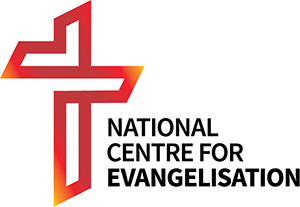LITURGY AND EVANGELISATION
What is liturgy?
“The word ‘liturgy’ originally meant a ‘public work’ or a ‘service in the name of/on behalf of the people.’ In Christian tradition it means the participation of the People of God in ‘the work of God.’ Through the liturgy Christ, our redeemer and high priest, continues the work of our redemption in, with, and through his Church.”
Catechism of the Catholic Church (CCC), n. 1069.
The Eucharist, also referred to as the Mass, is the form of liturgy in which Catholics most regularly participate. This liturgy is regarded as the summit toward which the activity of the Church is directed and the font from which all her power flows.[1] The CCC expresses it this way:
The Eucharist is “the source and summit of the Christian life.”
CCC, n. 1324.
However, liturgy also refers to other forms of public worship, such as the celebration of the sacraments, for example, baptisms and marriages, as well as the Liturgy of the Hours. Liturgy does not include personal prayers or devotions.
There are numerous resources on the liturgy. Please find below key documents and resources which will deepen your understanding of Catholic liturgy.
Liturgy and evangelisation – Encounter, Discipleship, Mission
As Catholics it is our duty to attend Mass on Sundays as long as we are physically able to do so (CCC, nn. 2175-2195). When we consider the Mass in relation to the task of evangelisation, we can think of it this way:
- Encounter: It is in the Mass that we encounter Jesus
- when we receive his Body and Blood in Holy Communion
- when we hear the Word of God in the Scriptures
- in the person of the Priest
- in the community of believers
- Discipleship: Full and active participation in the Mass strengthens Catholics in their relationship with the risen Christ. The Mass nourishes them so that they can sincerely attempt to live lives according to the teachings of Jesus. In so doing, they are made ready to follow Jesus’ commandment to go out into the world and share the Good News (Matthew 28:16-20).
- Mission: Having heard and reflected on the Word of God and received Jesus in Holy Communion within the community of believers, Catholics are sent out into the world to “be Jesus” for all those they encounter. The mission we are called to is beautifully expressed in the words by St Teresa of Avila (1515-1582):
“Christ has no body now but yours. No hands, no feet on earth but yours. Yours are the eyes through which he looks compassion on this world. Yours are the feet with which he walks to do good. Yours are the hands through which he blesses all the world. Yours are the hands, yours are the feet, yours are the eyes, you are his body. Christ has no body now on earth but yours.”
Key documents and resources on liturgy
- Vatican II. Constitution on the Sacred Liturgy, Sacrosanctum Concilium (4 December 1963).
- Catechism of the Catholic Church, Part Two: The Celebration of the Christian Mystery. See paragraphs 1174-1178 for information on the Liturgy of the Hours.
- General Instruction of the Roman Missal This is the official document of the Church explaining how the Eucharist (Mass) is to be celebrated in the Roman Rite.
- YouCat (Australia and New Zealand). This publication is only available in book format. The section on the liturgy, especially paragraphs 166-171, is particularly helpful for younger people in understanding the importance of the liturgy. The book can be purchased from most Catholic bookshops, or online from Freedom Publishing.
- The Mass Series: Video series produced by Archbishop Mark Coleridge, Archdiocese of Brisbane.
- The Mass | Eucharist: Introductory article on Becoming Catholic website with further reading provided.
Formation and networks focused on liturgy
- For training in liturgical ministries, please contact your parish and or diocesan offices in the first instance to ascertain what is available locally. Diocesan office contacts are listed here.
- Bishops Commission for Liturgy includes links to:
- National Liturgical Architecture and Art Council
- National Liturgical Council
- National Liturgical Music Council
- Australian Pastoral Musicians Network
[1] Compendium of the Catechism of the Catholic Church, n. 219.



